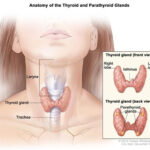Everything You Need to Know About High Blood Pressure
Hypertension — more commonly known as high blood pressure — is one of the most widespread health conditions worldwide. It’s often called the “silent killer” because it can develop without obvious symptoms but can lead to serious complications like heart disease, stroke, and kidney failure if left unmanaged.
To help you better understand this condition, here are answers to some of the most frequently asked questions about hypertension.
1. What is hypertension?
Hypertension occurs when the force of blood against the artery walls is consistently too high. It’s usually diagnosed when blood pressure readings are consistently at or above 130/80 mm Hg.
-
Systolic (top number): Pressure when the heart beats
-
Diastolic (bottom number): Pressure when the heart rests between beats
2. What causes high blood pressure?
There are two main types:
-
Primary (essential) hypertension – No identifiable cause; develops gradually over years
-
Secondary hypertension – Caused by another medical condition (e.g., kidney disease, hormone disorders, medications)
Risk factors include:
-
Family history
-
Aging
-
Poor diet (especially high salt intake)
-
Lack of physical activity
-
Smoking
-
Obesity
-
Stress
-
Excessive alcohol use
3. What are the symptoms of hypertension?
Often, there are no symptoms at all, which is why regular checkups are important.
When symptoms do appear, they might include:
-
Headaches
-
Dizziness
-
Blurred vision
-
Shortness of breath
-
Chest pain
These symptoms often appear only when blood pressure reaches dangerously high levels.
4. How is high blood pressure diagnosed?
Hypertension is diagnosed using a blood pressure monitor. Your doctor may ask you to take several readings at different times to confirm the diagnosis. You may also be asked to monitor your BP at home or wear a 24-hour monitor.
A reading of:
-
Normal: Below 120/80 mm Hg
-
Elevated: 120–129 / less than 80 mm Hg
-
Hypertension Stage 1: 130–139 / 80–89 mm Hg
-
Hypertension Stage 2: 140+ / 90+ mm Hg
-
Hypertensive Crisis: 180+ / 120+ mm Hg (seek immediate care)
5. Can hypertension be cured?
There is no cure, but it can be managed and even reversed in some cases through lifestyle changes and/or medication.
The goal is to lower your blood pressure and keep it in a healthy range to prevent complications.
6. How is high blood pressure treated?
Treatment typically involves:
-
Lifestyle changes:
-
Eating a heart-healthy diet (e.g., DASH diet)
-
Reducing salt intake
-
Exercising regularly
-
Quitting smoking
-
Managing stress
-
Limiting alcohol
-
-
Medications:
-
Diuretics
-
ACE inhibitors
-
Beta-blockers
-
Calcium channel blockers
-
ARBs (angiotensin receptor blockers)
-
Your doctor will choose a treatment based on your overall health, age, and the severity of your condition.
7. Why is hypertension dangerous?
Uncontrolled high blood pressure can lead to:
-
Heart attack or stroke
-
Kidney damage
-
Vision loss
-
Aneurysms
-
Cognitive decline or dementia
That’s why early detection and consistent management are so important.
8. How often should I check my blood pressure?
-
Healthy adults: At least once a year
-
People with risk factors or a diagnosis of hypertension: As often as your doctor recommends (often weekly or daily at home)
Investing in a reliable home blood pressure monitor is a good idea for regular tracking.
9. What foods should I eat or avoid with high blood pressure?
Eat more of:
-
Leafy greens
-
Berries
-
Whole grains
-
Low-fat dairy
-
Nuts, seeds, legumes
-
Fish rich in omega-3s
Avoid or limit:
-
Salty and processed foods
-
Sugary drinks
-
Fried foods
-
Red and processed meats
-
Excessive alcohol
10. Can stress cause high blood pressure?
Yes. Chronic stress can contribute to elevated blood pressure levels and unhealthy habits like poor eating, lack of sleep, or smoking — all of which increase the risk of hypertension.
Practicing relaxation techniques like deep breathing, yoga, meditation, or regular exercise can help lower stress and blood pressure.
Final Thoughts
Hypertension is common but manageable. The key is awareness, routine monitoring, and a commitment to a healthier lifestyle. If you’ve been diagnosed with high blood pressure — or think you might be at risk — don’t ignore it. Talk to your doctor, monitor your levels, and take steps to protect your heart and overall well-being.



